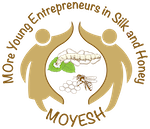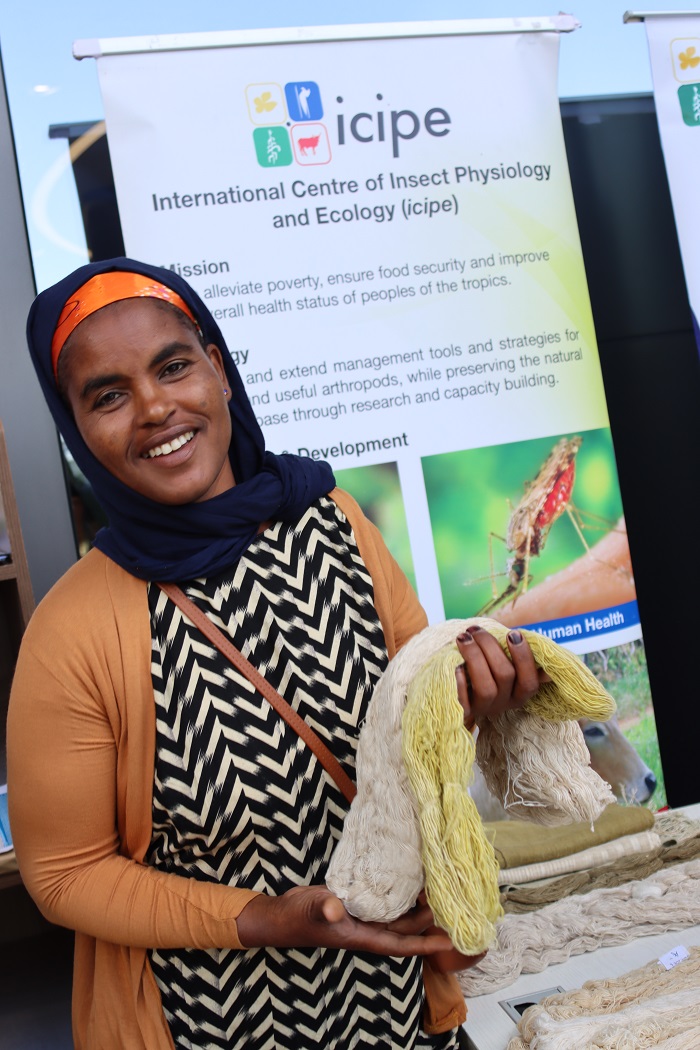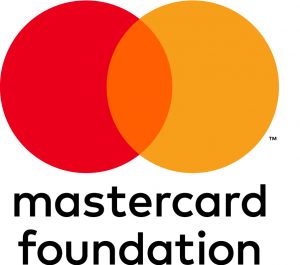Commercial insect products displayed at the Agri-Science Exhibition attracted to research, development and private actors
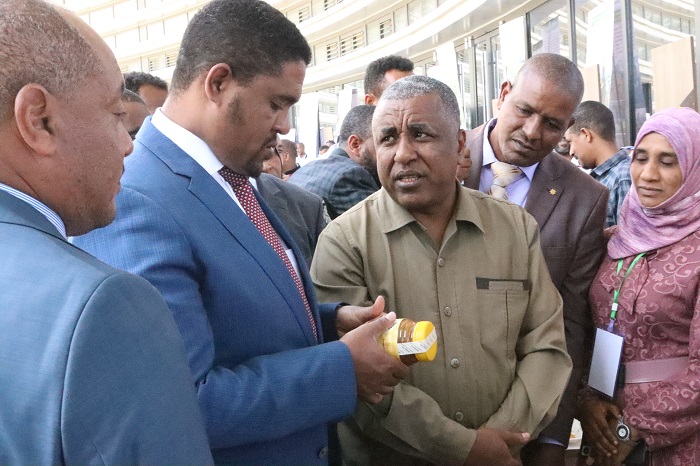
Pictured: (2nd l-r) H.E. Shimeles Abdisa, President of the Oromia Regional State observing the quality and nicely packed table honey produced and displayed by MOYESH youth partners at the National Science Museum in Addis on 12 May 2023.
The International Centre of Insect Physiology and Ecology (http://www.icipe.org/) showcased rich research advancements and commercial insect products on 12 May 203 at the National Science Museum in Addis Ababa enthusing a huge number of visitors and guests of honour. The high-level Agricultural Science Exhibition organized by the Ministry of Agriculture (http://www.moa.gov.et/en/) in collaboration with the Agricultural Transformation Institute and Ethio Telecom was inaugurated on 7 May by H.E. Abiy Ahmed, the Prime Minister of Ethiopia. The event was designed to foster knowledge, promote innovations and motivate technology-led agriculture.
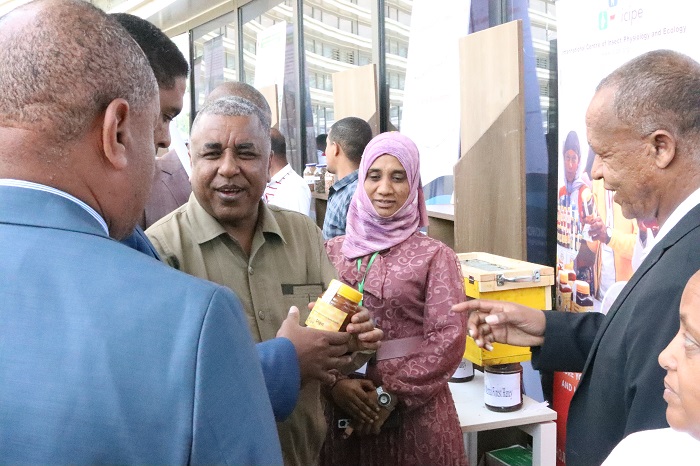
Pictured: (2nd l-r) H.E. Shimeles Abdisa, President of the Oromia Regional State (holding a bottle of organic table honey produced by the MOYESH youth partners), H.E. Dr Girma Amente, Minister, of the Ministry of Agriculture, Dr Amina Abdurhaman, Oromia Livestock Office Head in discussion with Mr. Teshome Kumela, MOYESH Programme Oromia region manager when they visited the MOYESH project stand at the Agric-Science exhibition.
icipe participated in the special occasion, where various technologies and agricultural products were exhibited and visited by H.E. Shimeles Abdisa, President of the Oromia Regional State, H.E. Dr Girma Amente, Minister, of the Ministry of Agriculture and many other key personalities. Over 100 institutions exhibited their research practices, products, and innovations. icipe booths were among the influential brimming with organic processed and packed table honey and silk products displayed by the More Young Entrepreneurs in Silk and Honey (MOYESH) Programme model youth enterprises. In addition, the new insect-based farming technology (mass production of Black Soldier Fly) is being implemented in Ethiopia to improve poultry, fish, and pig as well as crop production providing a wonderful moment to promote the technology, visibility and reputation of icipe.
icipe scholars were invited to share their best experiences and delivered thought-provoking discussions on a holistic and inclusive approach to advancing beekeeping and sericulture development and creating decent jobs for millions of young people in Ethiopia. The event provided a golden opportunity for the youth partners and exhibitors to establish networks and collaborations, exchange experiences and good working models and have Business-to-Business (B2B) discussions. Our displays and products have drawn the attention of government stakeholders, NGOs, international organizations, farmers, beekeepers, young entrepreneurs, traders, students, and the media.
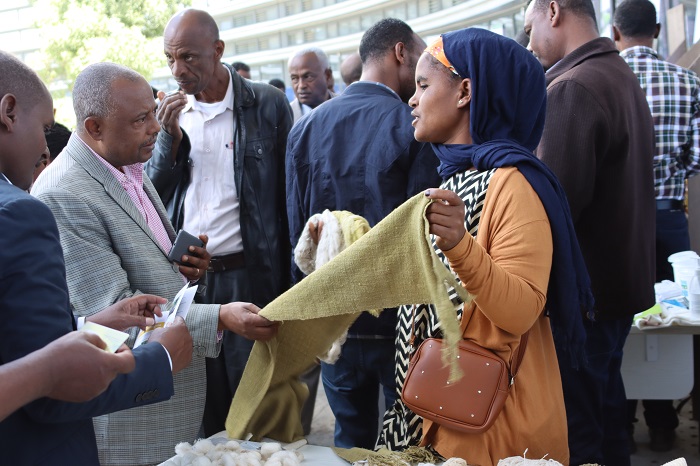
Ms Nigat Abe (forefront holding scarf), a member of Wankiya, Fatuma, Lali and their Friends’ Sericulture Enterprise in Adami Tullu Jido Kombolcha Woreda of the Oromia Region explains activities run by her enterprises and the result of the silk products to the visitor.
Notes for Editors
The More Young Entrepreneurs in Silk and Honey (MOYESH) project, a partnership between the International Centre of Insect Physiology and Ecology (www.icipe.org), the Mastercard Foundation’s Young Africa Works in Ethiopia initiative, and several Ethiopian public and private sector partners is a five-year programme (2019 – 2024) being implemented in the Amhara, Oromia and Southern Nations, Nationalities Peoples’ (SNNP) regions of Ethiopia. It is aligned with ongoing efforts to alleviate youth unemployment or underemployment in Ethiopia, aiming to create dignified and fulfilling jobs and income opportunities for 100,000 unemployed youth (60 percent of them women) through the honey and silk value chains. Additionally, the MOYESH project will also benefit 14.6 million people along the honey and silk value chains. Currently, the project has achieved 70 percent of its total youth target.
Mastercard Foundation seeks a world where everyone has the opportunity to learn and prosper. Through its Young Africa Works strategy and Canadian EleV program, the Foundation works with partners to ensure that millions of young people, especially young women, access quality education, financial services, and dignified work. Mastercard Foundation was established in 2006 through the generosity of Mastercard when it became a public company. The Foundation is independent with its own Board of Directors and CEO. For more information and to sign up for the Foundation’s newsletter, please visit http://www.mastercardfdn.org/ Follow the Foundation on Twitter at @MastercardFdn
The International Centre of Insect Physiology and Ecology (www.icipe.org): headquartered in Nairobi, Kenya, is the only research institution in Africa working primarily on insects and other arthropods. The Centre conducts world-class science and then translates this knowledge into innovative environmentally friendly, affordable, accessible and easy-to-use solutions to tackle crop pests and disease vectors. icipe’s role also extends to the conservation and sustainable exploitation of beneficial insect biodiversity. Thus, icipe works through the 4Hs Themes – Human Health, Animal Health, Plant Health and Environmental Health – a holistic and integrated framework that has sustainable development as its basis, to improve food security, health and the overall well-being of communities in Africa. We gratefully acknowledge the support of icipe core donors: Swedish International Development Cooperation Agency (Sida); Swiss Agency for Development and Cooperation (SDC); Australian Centre for International Agricultural Research (ACIAR); Federal Democratic Republic of Ethiopia and the Government of the Republic of Kenya. The views expressed herein do not necessarily reflect the official opinion of the donors.
